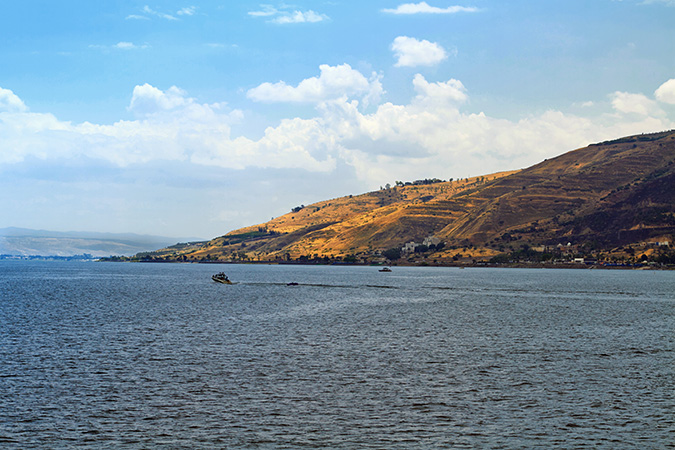Israel, officially known as the State of Israel, is a country where history, politics, economics, geography, culture, and tourism coexist in an amazing way. Located in the Mediterranean Levant, in the heart of the Middle East, Israel borders Lebanon, Syria, Jordan, Egypt, the Gaza Strip and the West Bank, and has access to the Mediterranean Sea and the Red Sea. With almost 10 million inhabitants, it is the only Jewish State in the world, although it also houses significant communities of Muslims, Christians, Druze, and Samaritans.
History of Israel
The history of this country dates back more than 3,000 years, identifying with the ancient Land of Israel (Eretz Yisra'el), a central concept in Judaism. This region was the cradle of important civilizations and the setting for fundamental biblical events. Over the centuries, the region was dominated by empires such as the Egyptian, Assyrian, Babylonian, Roman, Byzantine, Arab, and Ottoman.
In the 19th century, the Zionist movement emerged with the aim of establishing a national home for the Jewish people in Palestine. Following the approval of the United Nations Partition Plan in 1947, Israel declared its independence on May 14, 1948. Since then, it has faced armed conflicts, peace agreements, and a constant struggle for international recognition.
Policy: Democracy in the Heart of the Middle East
Israel is a parliamentary democracy with universal suffrage. Its parliament, the Knesset, is composed of 120 members. The head of state is the president, while executive power rests with the prime minister.
Israeli political life is dynamic and diverse, marked by the existence of numerous parties representing different religious, ideological, and ethnic sectors. Despite being surrounded by countries with authoritarian or unstable regimes, Israel maintains a solid democratic structure. Judicial decisions, freedom of the press, and the alternation of power reflect its commitment to democratic values.
Geography and Climate: From Fertile Valleys to the Negev Desert
Israel presents a varied geography: from the coastal plain of the Mediterranean to the arid Negev desert, passing through the mountains of Judea, Galilee and the Golan Heights. In the east, the Jordan River and the Dead Sea mark one of the lowest depressions on the planet.
The climate is equally diverse. In the north, it is Mediterranean, with rainy winters and dry summers. In the south, the desert climate prevails. This variety allows the country to be ideal for ecological tourism activities, adventure sports, and specialized agricultural crops.
Economy: Innovation, technology and development
Israel has achieved impressive economic development, being today one of the most advanced economies in the world. Despite the scarcity of natural resources, it has bet on innovation, technology, and precision agriculture. It is a world leader in start-ups per capita, exporting high technology, software, pharmaceutical products, and advanced weaponry.
According to the International Monetary Fund, Israel ranks 26th in the world ranking by Gross Domestic Product (GDP) and 16th in GDP per capita. It is a member of the OECD and its main trading partners are the United States, China, and the European Union. In addition, it has been a pioneer in the use of solar energy, desalination technologies, and water recycling.
Culture: A Fusion of East and West

Israeli society is multicultural, a product of the multiple waves of migration of Jews from Europe, Africa, America, and Asia, along with local Arab communities. This richness is reflected in its music, literature, gastronomy, and celebrations.
Israel boasts a vibrant cultural scene. Tel Aviv and Jerusalem are hubs for international film, theater, dance, and music festivals. Israeli literature is globally recognized with authors like Amos Oz and David Grossman. The cuisine, for its part, offers a fusion of Sephardic, Ashkenazi, Arab, and Mediterranean flavors.
Education and science also hold a prominent place. Israeli universities are among the best in the world, and the country has produced numerous Nobel laureates in chemistry, economics, and literature.
Tourism in Israel

Israel is a tourist destination that captivates with its diversity. Jerusalem, its historical and spiritual capital, is the epicenter of pilgrimages and religious emotions. There are emblematic places such as the Western Wall, the Church of the Holy Sepulchre, and the Dome of the Rock. In Bethlehem, a few kilometers away, is the Church of the Nativity, while in Nazareth the Basilica of the Annunciation stands out.
Tel Aviv represents the modern and cosmopolitan face of the country. Known for its beaches, Bauhaus architecture, and intense nightlife, it is also home to top-tier technology centers. Jaffa, its sister city, combines history and modernity in a charming coastal environment.
The Dead Sea offers a unique experience: floating in its hypersaline waters more than 400 meters below sea level. In the north, the Sea of Galilee and the Golan Heights invite you to explore natural routes, historical sites, and vineyards.
A destination for all the senses
Traveling to Israel is living a multisensory experience where the past comes to life and the future is written in real time. It is a land of contrasts, spirituality, innovation, and natural beauty. From the archaeological remains in Masada to the high-tech laboratories in Haifa, Israel is a country that inspires, moves, and transforms.
Ideal for pilgrims, historians, adventurers, or simply curious travelers, Israel positions itself as one of the most unique tourist destinations in the world. Its millenary history, combined with a vibrant and resilient spirit, turns each visit into an unforgettable experience.

 Spanish
Spanish








